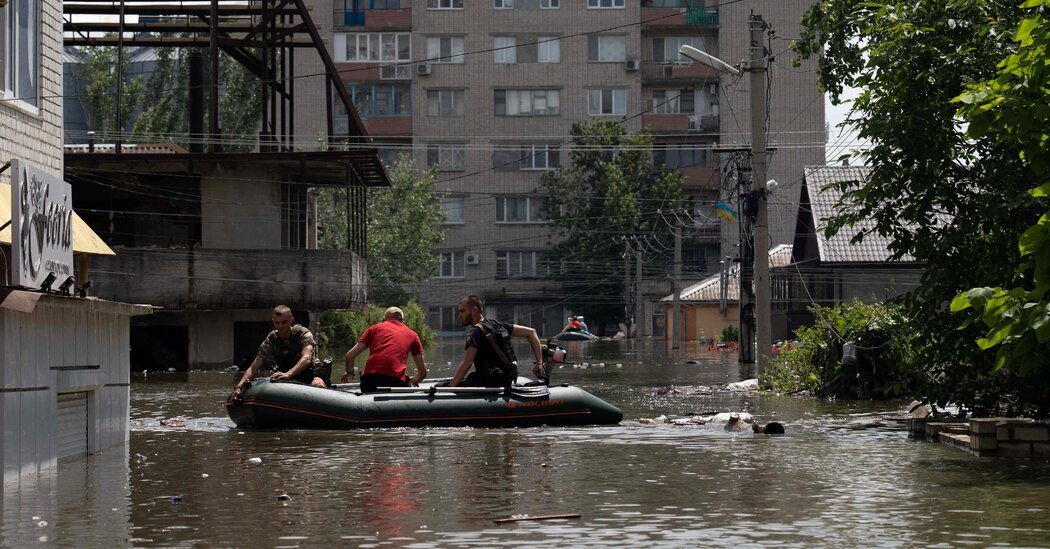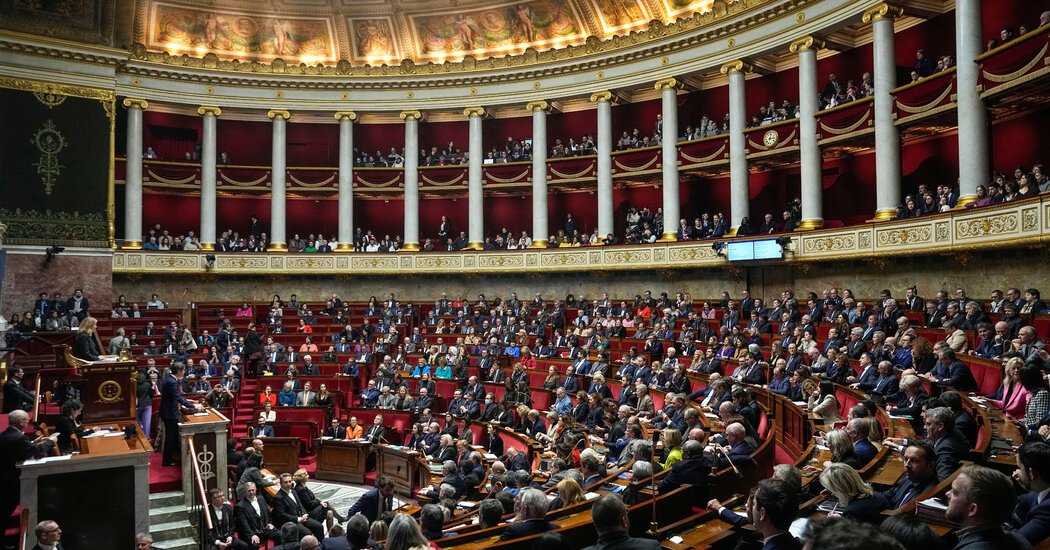In one spot, a red armchair floated in the flood. Elsewhere, trash bobbed in the filthy water.
“We were getting used to the shelling but I’ve never seen a situation like this,” said Larisa Kharchenko, a retired nurse who thought she might sit out the flood yesterday, when water was knee-deep in her yard but not yet in her home. By Wednesday, it was spilling through her door.
“Somebody needs to arrest Putin,” she said, referring to President Vladimir V. Putin of Russia.
In some areas of the Ostriv neighborhood, water reached the roofs of houses. “It just keeps coming,” said Ms. Kharchenko.
Alla Snegor, 55, a biology teacher, stepped out of a boat and looked back at the flooded city streets. She said she was trying to stay out of the water.
“Think of what is in this flood,” she said. “Pesticides, chemicals, oil, dead animals and fish, and also it washed away graveyards.” She said she had been boiling tap water before drinking it on Wednesday, in case the city’s waterworks had been infused with floodwater.
Serhiy Litovsky, 60, an electrician, said he was most worried about the long struggle ahead for southern Ukraine, one of the world’s richest agricultural zones but reliant on irrigation — most from the quickly draining reservoir.
“Without irrigation, it will be a desert here,” he said. “Without water, nobody will live here. The legacy of this will last dozens of years.”
The scale of the disruption was hard to fathom, he said. “Without war, this would be a major catastrophe. But this came along with the war.”





